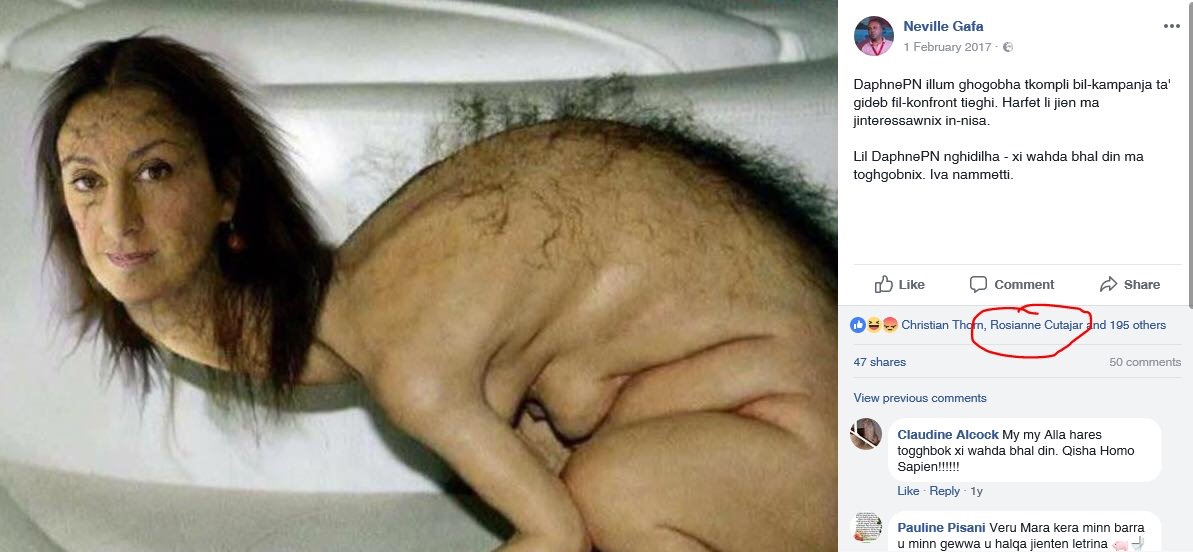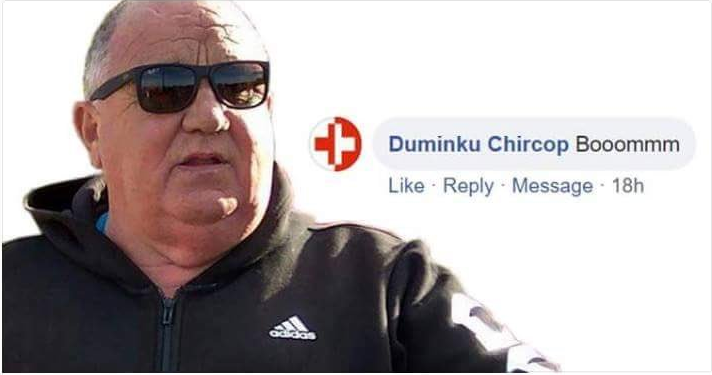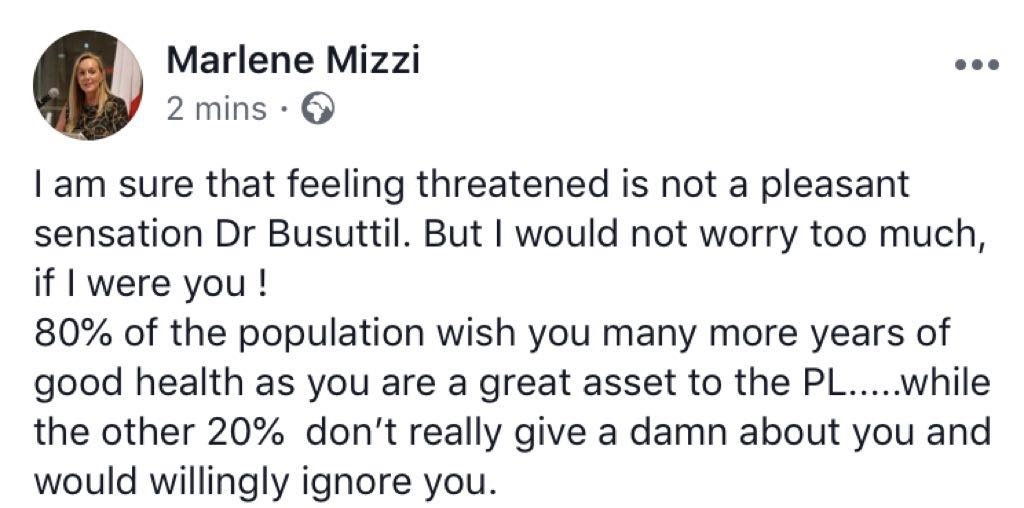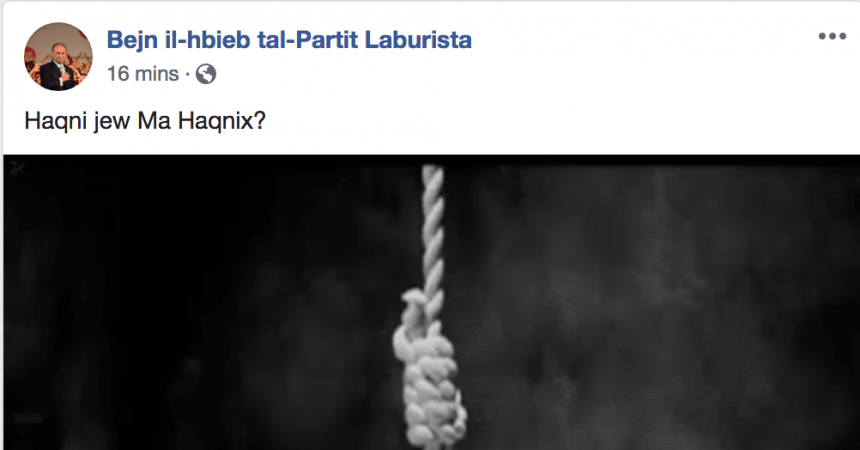During the Holocaust, Nazis called Jews and Roma ‘rats’ and ‘Untermensch’ (subhuman). The Rwandan genocide saw one group (Hutus) calling another group (Tutsis) cockroaches. Members of the Maltese government and the Labour Party called assassinated journalist Daphne Caruana Galizia “saħħara” (witch), among worse dehumanising labels, over her 30-year career.
One of the oldest tools in the propagandist’s toolkit – dehumanisation or demonisation of the ‘other’ – is aimed at depriving an individual or group of its human qualities through brutish rhetoric and disinformation. Its purpose is to generate support for the dehumaniser while weakening any kind of support – emotional, political, or even basically human – for the dehumanised.
It opens the door for cruelty, violence and murder. After Caruana Galizia was assassinated, those fighting for justice for the journalist are now also game.
For most people, especially in a society as small as Malta’s, it remains difficult to inflict violence on others. Most of us have strong inhibitions against treating other people like animals. Dehumanisation – especially when it happens online, which allows anonymity – allows people to overcome those inhibitions.
The Shift News investigation into Labour’s secret Facebook groups, administered by and home to government and Labour Party officials, found thousands of dehumanising comments and doctored images of Caruana Galizia. Discussion about Caruana Galizia went from vilification to open incitement of violence against her, as doctored images depicting her grew increasingly vile and decreasingly human.

A post by Neville Gafa, given a job at the Office of the Prime Minister after his involvement in the Libyan visa scandal was revealed. Labour MP Rosianne Cutajar liked the post published a few months before Daphne Caruana Galizia’s assassination.

Reactions to Neville Gafa’s post on his timeline propagate the Labour Party’s narrative of the journalist as a witch.
Following the car bombing that killed Caruana Galizia, photos depicting the crime scene apparently covered with Caruana Galizia’s severed limbs circulated on social media and WhatsApp. From American troops posing with dead Afghans to Nazis collecting Jews’ skin and teeth, seeing body-parts as trophies often accompanies this form of dehumanisation – an extension of seeing the enemy as game.
While Caruana Galizia and her family continue to be dehumanised, with Labour activists celebrating her assassination with the tacit approval of government and Labour Party officials, the rhetoric is now being targeted at those campaigning for justice for Caruana Galizia and against government corruption.
One prolific pro-government troll, ‘Maltese Canary’- real name Freddie Tanti, an elderly Maltese man residing in Norwich, UK – referred to Caruana Galizia’s family and anti-corruption activists, in typically genocidal language, as cockroaches. Tanti is, unfortunately, one example of thousands.

The President of the Naxxar Labour Party Committee, Duminku Chircop, kept busy last week posting “Booommm” under activists’ posts that commemorated Caruana Galizia, 10 months since her assassination.
People attending vigils for Caruana Galizia are repeatedly referred to by government and Labour Party officials as “mdejjqin” and “ndannati” (depressed/miserable and damned).
Anti-corruption opposition politicians are now being subjected to increasingly intense dehumanisation. This week saw memes circulating across Facebook that fantasised over the death of former Opposition Leader Simon Busuttil.

The President of the Naxxar Labour Party Committee, Duminku Chircop, wrote “booomm” under posts last week commemorating assassinated journalist Daphne Caruana Galizia.
What is considered to be acceptable discourse in Malta has shifted so far towards the violent extreme that when Busuttil said he fears for his life in an interview with EU Observer, government officials mocked him, saying that they have no reason to kill or harm him as they consider him to be unpopular.
Labour MP and aide to the Prime Minister Glenn Bedingfield, and Caruana Galizia’s chief dehumaniser, said ‘LONG LIVE SIMON’ arguing that Busuttil is an ‘asset’ to the Labour Party.
His words were parroted by Labour MEP Marlene Mizzi, whose husband Judge Antonio Mizzi refused to recuse himself on a Panama Papers case.
A constitutional court ruled that his refusal to recuse himself from a complaint on Panama Papers breached former Opposition leader Simon Busuttil’s right to a fair hearing due his wife being an MEP, creating a conflict of interest. It came as no surprise that the Attorney General appealed the decision, while the judge’s wife felt no need to show restraint.

It is quite surreal that government members feel it is fine to post comments on who they deem fit to live or die according to whether individuals are considered an asset to the Labour Party in government. The fact that they feel this is acceptable behaviour is a sign of the times.
We are now in a situation where it is possible to think, talk and ‘joke’ openly about inflicting violence on and murdering government opponents.
Caruana Galizia’s assassination on 16 October wasn’t an aberration, but the culmination of a relentless government and Labour Party-led dehumanisation campaign against her.
Caruana Galizia’s assassination, rather than marking a turning point in the way that the government and Labour Party treats critics and opponents, has opened the floodgates.

A government employee says that after Daphne Caruana Galizia, journalist Caroline Muscat deserves a few bombs too.
Advisor to the Prime Minister Tony Zarb and the Labour Party’s official news website, called for opposition MEP David Casa to be hanged. Finance Minister Edward Scicluna liked one such comment on Facebook, later saying, without apologising or condemning the comment, that it was a mistake but the MEP was “pathetic” for reacting.
The Facebook group “Bejn il-hbieb tal-Partit Laburista” (Between friends of the Labour Party), which was previously the Birkirkara Labour Party page, posted a GIF of a swinging noose, captioned “Do I or don’t I deserve it?”, inviting members to express their wish to see Casa hanged.
Government and public officials, as well as Labour Party activists, are dehumanising their perceived enemies more openly, and with impunity. Those in government fuel this behaviour and defend it. In this context, a journalist’s assassination was predictable. And any complacency or acceptance of a continuation of the discourse that led to Caruana Galizia’s death is a guarantee of more violence.
https://www.facebook.com/TheShiftNews/videos/681560845559402/












